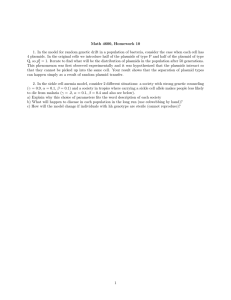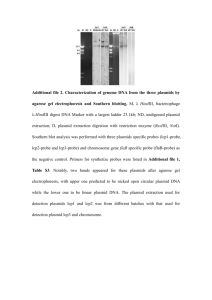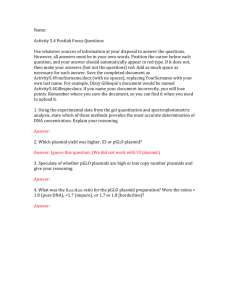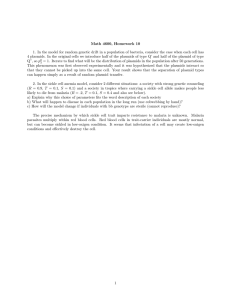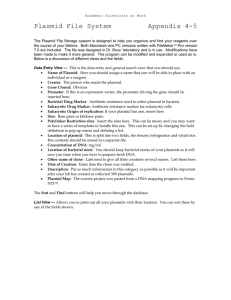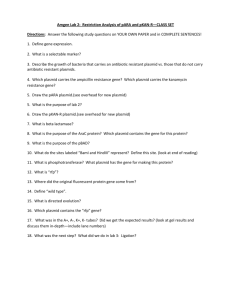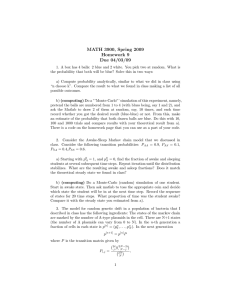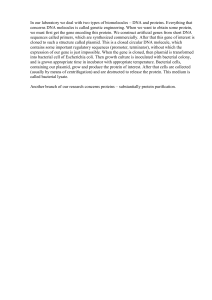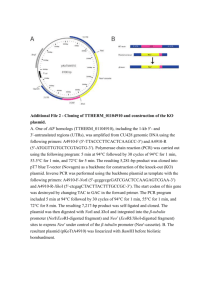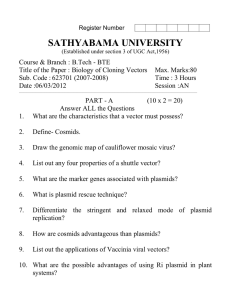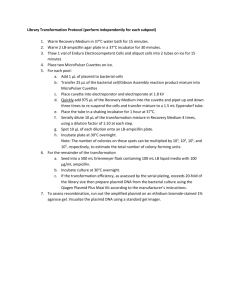BIO 121 final exam (Session 1) - DLST
advertisement
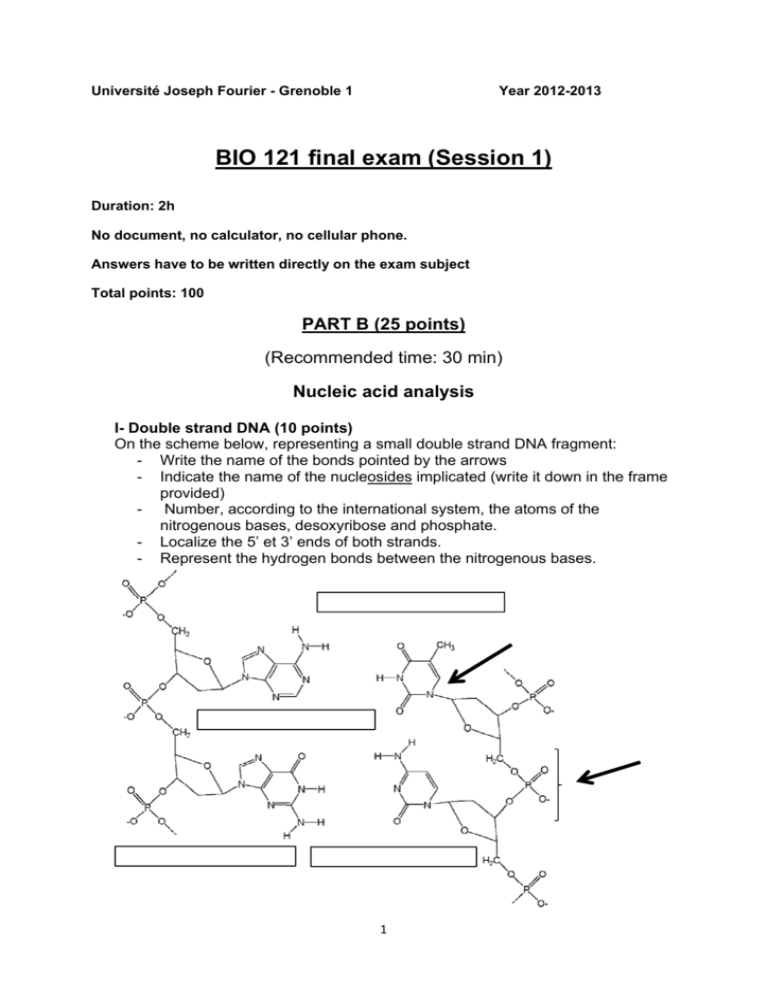
Université Joseph Fourier - Grenoble 1 Year 2012-2013 BIO 121 final exam (Session 1) Duration: 2h No document, no calculator, no cellular phone. Answers have to be written directly on the exam subject Total points: 100 PART B (25 points) (Recommended time: 30 min) Nucleic acid analysis I- Double strand DNA (10 points) On the scheme below, representing a small double strand DNA fragment: - Write the name of the bonds pointed by the arrows - Indicate the name of the nucleosides implicated (write it down in the frame provided) - Number, according to the international system, the atoms of the nitrogenous bases, desoxyribose and phosphate. - Localize the 5’ et 3’ ends of both strands. - Represent the hydrogen bonds between the nitrogenous bases. 1 What kind of interaction(s) stabilize the double helix and what is the method one can use to separate the two DNA strands? II- Problem (15 points) A researcher has two plasmids pET-28a(+) et pET-15b(+) that have been inserted separately into Escherichia coli bacteria. He had written the name of the plasmids and bacteria on each tube but the mark was erased and he doesn’t know anymore in which tube which plasmid was stored. Kan: kanamycine resistance gene Kan : gène de résistance à l’antibiotique kanamycine Ap : gène de résistance à l’antibiotique ampicilline Ap: ampicilin resistance gene Circle on the pET-28a(+) plasmid the three elements common to all plasmids and indicate their role below: 2 Propose a simple experiment (with a plasmid purification as a first step) that would allow the identification of the 2 tubes. The researcher has a nucleotide sequence that corresponds to the gene of a protein of 170 amino acids. This sequence contains on both ends a cleavage site for the restriction enzyme BamHI. He wants to insert this gene in the pET-28a(+) plasmid. Which steps will he have to realize to reach his goal? Be concise. In order to verify that the insertion was successful, the plasmid pET-28a(+) and the plasmid pET-28a(+) after the insertion process are digested by the restriction enzymes BamHI and NdeI. Localise on the gel the position of the expected bands after electrophoresis (justify your reasoning on the frame provided on the right of the figure). pET‐28a(+) pET‐28a(+) avec insert 3

